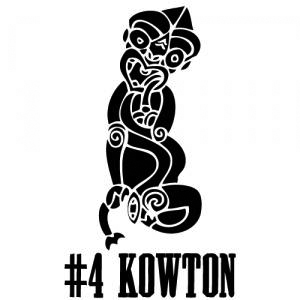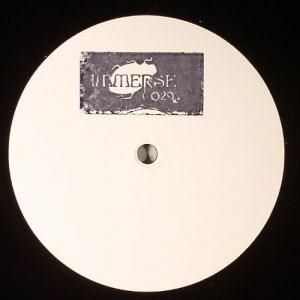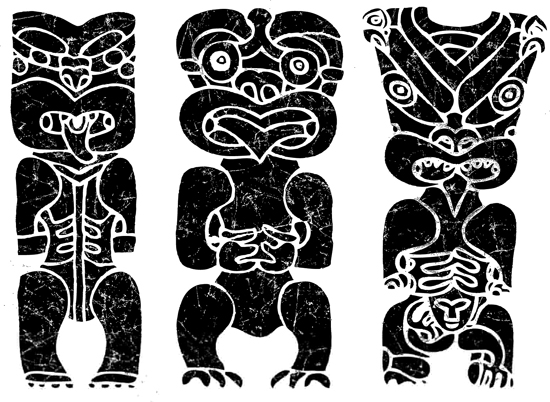This edition of Hyperspecific has ended up focusing on connections. It wasn’t planned that way, but thanks to an interesting few weeks in British dance music, and some powerful links drawn in mixes and clubs, all the music featured in this month’s column refuses to exist in any kind of easily identifiable space. Instead it hangs suspended in the in-between zones, highlighting the essential mutability of its source material. All of it makes for thrilling listening, and I suggest you seek these creatures out, post-haste.
Szare – Rochdale Principle [Krill Music]
Elgato – Zone/Luv Zombie [Hessle Audio]
Kowton – More Games/Jam 1 [Livity Sound]
West Norwood Cassette Library – Coming On Strong/Pangaea Remix [WNCL]
On UK dancefloors at the moment it’s often tough to isolate patterns and narrative strands, such is the skewed signal/noise ratio on the ‘bass music’ side of things. Instead convergences tend to develop out of sight then loom, unexpected, out of the background. However, one in particular has made itself felt over the last few months, as channels of communication have ferried ideas between outposts in Manchester, London and Bristol: between people like the Hessle Audio extended family, Idle Hands and Livity Sound, and those surrounding the Frozen Border/Horizontal Ground labels. As house and techno have started to interact with dubstep at club level, so they’ve shared party, festival and deck space with one another. Accordingly, their music has started to drift into common zones of interest.
The results, from people like Peverelist, Asusu, Kowton, October, Szare, Pangaea, Objekt, Elgato, AnD and Alex Coulton, are some of the most vibrant and exploratory sub-bass heavy music since dubstep blew its top a couple of years ago. (I touched on this a couple of months ago, along tentative lines, in an edition of this column about new narratives in post dubstep club music. It’s something that Philip Sherburne took further the other day in a blog post for Spin that’s well worth reading, on the theme of ‘enjoy it for now; we can name it later’.)
If you were to be slapdash about it, the space they all inhabit is closer to some very flexible, non-dogmatic concept of techno, than to the bass music masses that have drawn dubstep’s legacy elsewhere. But for many Bristol producers and the Hessle Audio collective especially, UK genres – dubstep, garage, grime and jungle – still lie right at the roots of what they do. That’s both in a metaphorical and a literal sense: listen to the chest-caving bass depth-charges that explode beneath Kowton’s newly released ‘More Games’, for example, or the way the steppers’ techno of Peverelist’s slippery ‘Erosion(s)’ slides outward with the stately inevitability of Krust-style rolling drum & bass. But these distinctly ‘UK’ tropes are merely anchoring base points, and a whole range of other forms wrap around them: Berlin and Detroit techno; the dubbed-out NY house of DJ Qu, Levon Vincent and the Underground Quality gang; UK-borne industrial lineages that stretch from Throbbing Gristle to techno by Karl O’Connor and Surgeon.
Despite not sounding particularly alike, Elgato’s new 12" for Hessle Audio, Szare’s Rochdale Principle EP and Kowton’s More Games 12" all feel cut from the same cloth. All swing their percussion until its motion feels as inevitable as clockwork, allowing the momentum from one run of drums to transfer effortlessly into the next. All practice a reductionist approach and prize economy of form, where the smallest possible amount of musical matter is used to give the greatest possible impact.
Most importantly, all are at heart soundsystem music. Their acres of space and physical weight loop them into a lineage that stretches further than dance music history, outward to dub and reggae and those genres’ interactions with post-punk. Links to dubstep, and especially virtuosos like DMZ’s Mala, are felt strongly in their use of dread as crowd control, heightening the intensity with sub-bass pressure and swing. But where Mala would often ratchet up the pressure before releasing it all in a great sigh of relief (listen to the second drop on ‘Miracles’ for a superb example) these three instead subsume any hint of the drop into an unending series of tension-release peaks. House and techno’s influence is most audible in the way their music’s narrative occurs on the micro rather than the macro level, its energy generated by very pregnant pauses between bass and percussion hits, and tracks’ incremental changes in shape. These are fusions but they’re inspired ones, very consciously dropping the baggage that big-room dubstep or techno tend to carry in favour of those genres’ more subtle aspects.

‘Luv Zombie’ – apparently an older track from around the time of Elgato’s first tracks for the label (released in late 2010) – moves with more purpose but still eschews the standard fall back of a kickdrum. Its nervous shuffle is instead lent propulsion by the slightest tickle of cymbals and big, bulbous sub-bass hits. That most over-used of current bass music tropes, the R’n’B vocal, is thrown into the mix – but it’s done so to unusually sinister effect, with repeated moans of being "aaaaa-ddicted to you": love the psychoactive drug, Luv Zombie an addled addict jonesing for her next hit.


These very UK-sounding hybrid forms don’t exist in a vacuum. They’re all held suspended by a tangled web of reference points, connections and affiliations. More so than, say, many early dubstep and grime producers, many of these producers have a deep knowledge of music stretching far beyond their immediate surrounds. But with so many people currently delving deep into the past, resulting in a dismaying volume of retro-leaning music, what’s exciting about people like Kowton, Elgato and Peverelist is that they still evoke the rushy, future-shocked sensations of jungle or grime. Their music gradually slipping within mixable range of each other has opened up the floodgates for other possibilities, with tracks reaching far and wide for influence while eschewing the tempting vortex of straight four-to-the-floor, or simple deep house revivalism.
These developments aren’t entirely unprecedented, though. There were traces – well, more than traces actually, precursors – in the likes of Dave Huismans and Rene Pawlowitz. Some time before many of this current crowd were flirting with techno, Huismans was taking equal strides into the worlds of dubstep and techno as 2562 and A Made Up Sound respectively. When they converged in his music a couple of years ago, it became difficult to define where the hell the difference lay anyway. 2562’s third album Fever was a dense and humid listen, any nominal traces of dubstep absorbed into a bounding, predatory techno whose drums landed perpetually just off the beat and in clouds of dust, thrown up to shade its inner workings. Meanwhile, Berlin resident Pawlowitz’s music as Shed has always engaged head-on with UK soundsystem musics, and his debut Shedding The Past made a bold and provocative statement about how hybridisation could be an escape route to rescue techno from the clutches of predictability and monotony. In a similar vein, from the outset Peverelist’s take on dubstep has always had an anti-drop sensibility, prioritising maintenance of mood over peaks and troughs; his current music simply applies the same ideas to lower tempos.
Another producer who excels at the creation of 130bpm house rollers is Hessle Audio co-boss Pangaea. His last 12" for Hemlock featured the devastating ‘Fatalist’, a shuffling monster only pinned in place by a metronomic off-beat hi-hat, which supported the track’s momentum while all hell broke loose in its surroundings. Pangaea’s is a pirate radio techno, steeped in the weight of hardcore continuum history and even making quite literal sonic references in the form of fragmented MC chatter and blurts of static interference.
His new remix of West Norwood Cassette Library’s ‘Coming On Strong’ is similarly virtuosic, setting up a fairly repetitive – albeit fiendishly busy – rhythmic framework and layering muted melody thick over the top like icing: stammered bleeps, long quivering drones, harmonies that rattle at the edge of earshot. There are traces of Baltimore club and Chicago footwork in its multi-limbed drum machine dialogue – the latter especially, in the way it occasionally gives the illusion of grinding to a sudden stop. But like his labelmates, Pangaea’s view of these sounds is mediated by his own experience and previous music; in the context, this is something different, and something well worth keeping an ear tuned to. (On the A-side, West Norwood Cassette Library’s original is the best thing he’s released to date too, a saxophone riddled house track that travels through a beautiful parabolic arc, zooming into space before slowly floating back to earth again.) You can listen to clips of both tracks here.
Vessel – Standard EP [Left_Blank]
Panther Modern – ‘Howl’/’Pentimento’ [Immerse]


Dream Continuum – Reworkz EP [Planet Mu]

Dream Continuum – the transatlantic alliance of Machinedrum and Om Unit (though the former is admittedly based in Berlin these days) – target that sweet spot with unerring accuracy. The Reworkz EP does such a convincing job of uniting the two, in fact, that it feels churlish and pointless to try and pick apart the divides where London meets Chicago. Throughout EP highlight ‘Set It’, clinically crisp drum machine hits coil around dissected whorls of Amen break like DNA strands, all orbiting a three note motif straight out of the hardcore textbook. Pitched-up voices familiar from rave and jungle are chucked into the footwork washing machine and ricocheted through the mix (trainspotters more skilled than I will doubtless be able to track the provenance of many of them): two minutes in, the easy toasting of a ragga MC suddenly skids to a timelocked halt, sending the track’s loping momentum into temporal disarray. Fifty seconds later it just as abruptly breaks free of its body bind and explodes outward at full force. ‘Giv A Lil Luv’ and ‘B Free’ on the flip are just as boldly referential and equally irreverent, carrying themselves with a rudeness and swagger that Machinedrum’s otherwise thoroughly enjoyable Room(s) LP largely lacked. All of which serves to confirm that Dream Continuum’s naughty cross-genre tryst is something that ought to happen far more often.
Header image: Livity Sound by Tape Echo



